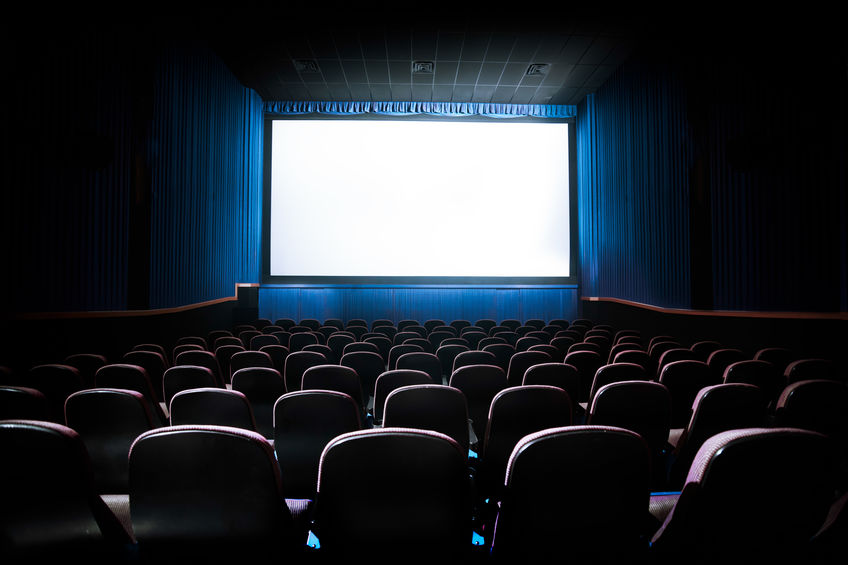|
www.HealthyHearing.com |
Hearing accessibility at the movies
Contributed by Joy Victory, managing editor, Healthy Hearing Going to the movies when you have hearing loss can be a bit of a challenge: Will you hear everything OK? Will it be worth the expense? Fortunately, in the US, most movie theaters must provide closed captioning and audio descriptions. These rules were issued in 2018 under the Americans with Disabilities Act by the Department of Justice. 
movies accessible to people with hearing loss. The law is good news for people who have severe hearing loss, as it makes it easier to enjoy going to the movies. Hearing aids make it easier to enjoy the moviesMore good news: Most people who wear hearing aids will not need any extra help. "Many people with mild-to-moderate hearing loss find that they hear quite well in movie theaters when wearing their hearing aids," notes Susanne Jones, a hearing instrument specialist and customer support manager for Healthy Hearing. "In my clinical experience, most hearing aid wearers felt that they understood speech at the movie theater better than they did while watching TV or movies at home. This is likely due to the volume, sound system quality and speaker placement." If you're worried the theater volume may be too loud, Jones advises adjusting the volume of your hearing aids slightly, to a more comfortable level. Modern hearing aids have loud noise suppression to keep your hearing safe. If hearing aids aren't enoughIf you have more severe hearing loss or are Deaf, you may need to find out what accessibility options your local movie theater offers. Arrive early so you can request the equipment you need. Also, give yourself time to set it up before the movie starts. If things don't go well, don't be afraid to ask for your money back. Here's an overview of what may be offered to you, and what to expect at major theater chains: Caption options at the moviesMovie theaters generally offer two types of captioning: open and closed.
Open caption screenings are not very common. Sometimes, movie theaters offer special "open caption" viewings for anyone who wants to watch movies with subtitles/captions, or if you have a large group and request a special screening. And of course, most foreign films screened in the US are subtitled in English. As of 2019, Hawaii is the only state that requires theaters with two or more locations to "provide open movie captioning during at least two showings per week of any movie that is produced and offered with open captioning." For closed captions, you must request a device that displays the captions at your seat. The type of device, technology and availability will vary by movie theater chain, so your first step is to figure out which movie theater chain you're going to be visiting and plan ahead with a little research. You may want to call ahead of time and ask. What can I expect going to a movie theater with hearing loss?Here's what we found from major theater chains on their websites or from online articles: Regal TheatersRegal provided the most information, including a helpful accessibility page on their captioning and descriptive video available to customers. They even provide a state-by-state listing of theaters and what accessibility options are available to you locally. Regal exclusively offers Sony Access eyeglasses with open captions, so viewers can have captions in their direct line of sight. These can be worn over regular eyeglasses. Regal recommends checking with your local theater to make sure you will have the help you need. Look for movie descriptions that say "accessibility devices available." You can also visit their website or use their mobile app to see what available technologies and amenities are available for a given showtime. AMC TheatersOn AMC's accessibility page, they state they offer:
CinemarkWe couldn't find an accessibility page for Cinemark. Based on online reports, it appears they may offer patrons CaptiView closed captioning devices. Landmark TheatersOn their accessibility page, Landmark lists which theaters have assistive listening equipment and also what they use, which varies by theater, but generally includes:
Marcus TheatresThis large chain offers similar assistive technology to Landmark. Assistive listening device (ALD) systemsEven if your local theater doesn’t have the newest captioning technology, they may offer some type of assistive listening device system for people with some residual hearing. Since the enactment of the ADA in 1990, all theaters with fixed seating for 50 patrons are required to provide an ALD system. Three different systems may be available:
Share your tipsPlease contact us if you have advice or tips to share with fellow movie-lovers who have hearing loss, and we can add them here. If you're curious see whether or not hearing aids or other hearing loss treatments may make your movie-going experience more enjoyable, find a hearing care professional in your area and schedule an appointment today. Joy Victory, managing editor, Healthy Hearing
Related Help Pages:
Assistive listening devices and systems FM systems
|
Featured clinics near me
Hearing Health Solutions from Ohio ENT - Columbus
974 Bethel Rd Ste B
Columbus, OH 43214
Earzlink Hearing Care - Reynoldsburg
7668 Slate Ridge Blvd
Reynoldsburg, OH 43068

Find a clinic
We have more hearing clinic reviews than any other site!


 Joy Victory has extensive experience editing consumer health information. Her training in particular has focused on how to best communicate evidence-based medical guidelines and clinical trial results to the public. She strives to make health content accurate, accessible and engaging to the public.
Joy Victory has extensive experience editing consumer health information. Her training in particular has focused on how to best communicate evidence-based medical guidelines and clinical trial results to the public. She strives to make health content accurate, accessible and engaging to the public.